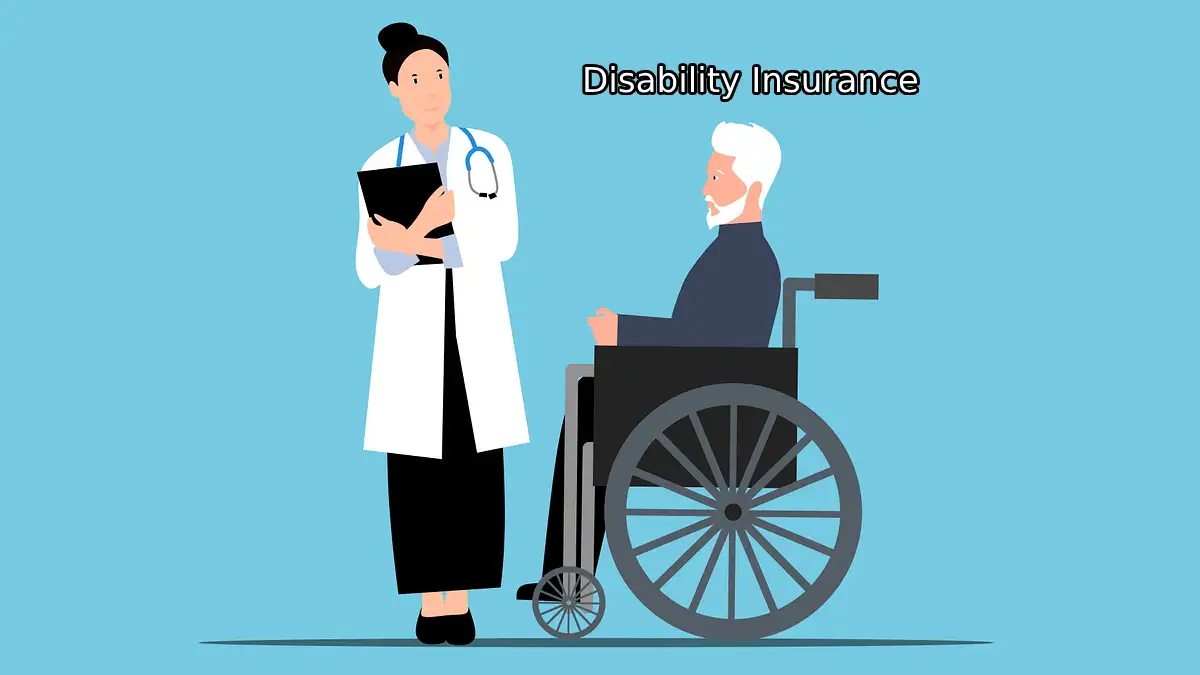Disability insurance is often a topic people avoid thinking about until it becomes necessary. The reality is, being prepared for unforeseen circumstances that could affect your ability to work is crucial for maintaining financial stability. Whether you are self-employed, a business owner, or an employee, disability insurance can provide the security you need to keep your lifestyle intact if you become ill or injured.
Understanding Disability Insurance
What is Disability Insurance?
Disability insurance is designed to protect your income by replacing a portion of your paycheck if you are unable to work due to a disability. This type of insurance ensures that your financial obligations are covered, allowing you to focus on recovery without the added stress of financial concerns.
Types of Disability Insurance: Short-Term vs. Long-Term
There are two primary types of disability insurance:
- Short-Term Disability Insurance (STD): Typically provided by employers, STD coverage offers income replacement for a short duration, usually several months. This type of policy is useful for covering temporary disabilities that might prevent you from working for a limited period.
- Long-Term Disability Insurance (LTD): LTD coverage provides protection if you are unable to work for a more extended period or permanently. Unlike STD, LTD policies are often purchased individually and can provide benefits for years or even until retirement.

Why You Need Disability Insurance
Financial Protection and Income Replacement
Without disability insurance, a sudden illness or injury can have devastating financial consequences. It replaces a portion of your income, ensuring that you can continue to meet your financial responsibilities, such as mortgage payments, bills, and other essential expenses.
Peace of Mind and Lifestyle Maintenance
Knowing you have disability insurance gives you peace of mind. It allows you to concentrate on getting better rather than worrying about how to make ends meet. This insurance helps maintain your lifestyle and financial plan, keeping you on track even when life takes an unexpected turn.
Evaluating Disability Insurance Policies
Employer-Provided vs. Individual Policies
Many employers offer disability insurance as part of their benefits package. While this can be a great start, it may not provide sufficient coverage for everyone. Individual policies often offer more comprehensive protection and can be tailored to your specific needs.
Coverage Differences and Benefits
When evaluating disability insurance policies, consider factors such as the amount of coverage, the length of time benefits are paid, and the waiting periods before benefits begin. It’s essential to understand these details to choose a policy that fits your needs.
The Role of Social Security in Disability Coverage
Social Security Disability Benefits
Social Security Disability Insurance (SSDI) provides benefits to those who are unable to work due to a disability. However, SSDI benefits can be limited and may not cover your full income, making additional disability insurance a valuable supplement.
Limitations of Social Security Coverage
While SSDI offers some support, it often doesn’t provide enough to replace a significant portion of your income. This gap highlights the importance of having private disability insurance to ensure comprehensive financial protection.
Cost of Disability Insurance
Affordability and Pricing Factors
Disability insurance is generally affordable, with many policies costing less than your daily coffee. Factors influencing the cost include the type of coverage, your health, the amount of coverage, and the policy’s duration.
Comparing Costs to Daily Expenses
When considering disability insurance, it’s helpful to compare the cost to everyday expenses. For most people, the expense of a policy is manageable compared to the financial strain of being without income during a disability.
Eligibility for Disability Insurance
Who Can Get Covered?
Disability insurance is available to a broad range of individuals, including those who are self-employed, part-time workers, stay-at-home parents, and caregivers. The eligibility criteria can vary, so it’s essential to check with providers like Northwestern Mutual for specific details.
Special Considerations for Different Occupations
Certain occupations may have higher or lower eligibility requirements based on the nature of the work and associated risks. It’s crucial to find a policy that addresses your specific occupation and its risks.
How Disability Insurance Works
Short-Term Disability Insurance (STD)
STD insurance kicks in soon after you become disabled and provides income replacement for a limited time. This type of coverage is ideal for short-term conditions that keep you from working for a few weeks to months.
Long-Term Disability Insurance (LTD)
LTD insurance takes over when STD coverage ends, offering benefits for extended periods. This coverage is essential for severe or long-lasting disabilities that prevent you from working for months or years.
How STD and LTD Work Together
Using STD and LTD in tandem ensures comprehensive coverage. STD provides immediate support, while LTD offers long-term protection, filling the gap once STD benefits end.
Northwestern Mutual’s Disability Insurance Options
Individual Coverage
Northwestern Mutual offers long-term disability insurance that can be tailored to your needs. This coverage helps protect your income if you’re unable to work due to a severe disability, ensuring financial stability over the long term.
Group Disability Insurance for Businesses
For business owners, Northwestern Mutual provides group disability insurance. This coverage can help cover overhead expenses if a key person becomes disabled and can also be a valuable employee benefit to attract and retain top talent.
Customizing Coverage with an Advisor
Working with an advisor can help you determine the right amount of coverage for your situation. They can provide personalized recommendations and ensure you have the protection you need.
Choosing the Right Advisor
Expertise and Experience
When selecting a disability insurance advisor, choose someone with the right expertise and experience. They should understand your goals and have a track record of working with clients in similar situations.
Understanding Your Local Area and Needs
An advisor familiar with your local area can offer insights into specific risks and requirements. They should also be able to tailor coverage to fit your unique needs and lifestyle.
FAQs
Disability insurance provides financial protection by replacing a portion of your income if you’re unable to work due to illness or injury. It ensures that you can continue to meet your financial obligations while you focus on recovery.
Disability insurance is essential for maintaining financial stability if you become disabled. It helps cover your expenses and replace lost income, allowing you to manage your finances without additional stress.
While employer-provided disability insurance is a good start, it may not provide sufficient coverage for all needs. Individual policies often offer more comprehensive protection and can be tailored to your specific situation.
Social Security Disability Insurance (SSDI) offers some benefits but often does not cover your entire income. Private disability insurance can supplement SSDI and provide more comprehensive financial protection.
Disability insurance is generally affordable, with many policies costing less than a daily cup of coffee. The cost depends on factors such as the type of coverage, your health, and the amount of coverage.
Conclusion
Disability insurance is a vital component of a well-rounded financial plan. It offers protection against the unexpected, ensuring that you can maintain your lifestyle and meet your financial obligations if you become disabled. By understanding the different types of coverage and working with a knowledgeable advisor, you can find the right policy to fit your needs and secure your financial future.
